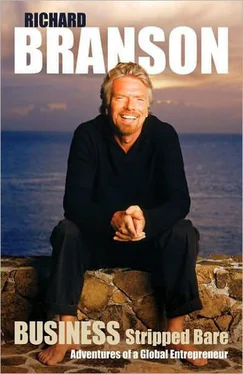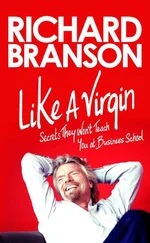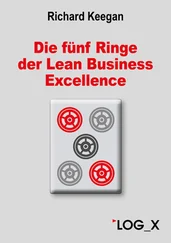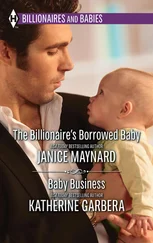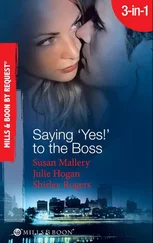I went sailing with Bill — discovering to my surprise that he used to race sailing boats — and he told me about the Microsoft Xbox, which he was about to launch on to the market to take on the Sony PlayStation. ‘It’s the biggest thing I’ve ever done,’ he said. But he was thoughtful, and I sensed that his mission in life was changing. He had achieved so much with Microsoft, building it to become one of the most powerful businesses on the planet. In little more than twenty years he had changed the face of the modern world. Now he was turning his formidable brain to solving some of the apparently intractable problems facing our Earth. He told me he went to see Nelson Mandela. ‘I said: "Most people think you’re a saint. Tell me the truth. Did you hate the people who put you in prison?"’
‘Yes, I did,’ was the answer to Bill’s question. ‘For twelve years I lived off those people and I hated them. Then I realised they couldn’t take my mind or my heart away.’
Bill was astounded and said meeting Mandela was a seminal point in his life: ‘He taught me about living.’
That must have been quite a moment: the richest human in the world talks to the most revered human and acquires a new purpose and a challenge in his life. I think it may eventually go into the history books as a turning point — the start of something big.
In January 2008, Bill Gates was a guest at the World Economic Forum in Davos, in Switzerland. He said: ‘We have to find a way to make the aspects of capitalism that serve wealthier people serve poorer people as well.’ He has called this idea ‘creative capitalism’, saying that by harnessing the basic factor that drives capitalism — self-interest — creative capitalism can enhance the interests of the giver and the recipient.
I agree. I think capitalism is a proven system: it works. But it has got a lot of faults. Breathtaking wealth goes to relatively few people. This would not matter so much, were it not for the fact that the very poorest in society are destitute, lacking even the basic amenities for survival. This being the case, an enormous responsibility falls on a successful business leader. Leaders need to reinvest their wealth by creating new jobs or by tackling the social problems of the world (ideally, both — which is what makes Muhammad Yunus’s microcredit movement so exciting).
History has thrown up no viable alternative to the free exchange of capital, goods and services, and the enterprise of law-abiding people. But capitalism as an ideology needs work and reform. Capitalism has to be more than the survival of the fittest.
My own fairly unexceptional view is that capitalism should pay far more attention to people and to the resources of this planet. I call it ‘Gaia capitalism’ for short, and as a tribute to the work of Professor James Lovelock, who has spent a lifetime tracing the life-sustaining connections between the living and non-living parts of the Earth. Human behaviour and human capital have to work with our planet.
More generally, entrepreneurs and wealth creators around the world must be a positive force for good. There is nothing unbusiness-like about sharing the benefits of your industry with happy, fulfilled people and a planet that is going to be there in all its glory for our children and grandchildren.
In 1997, while proposing a lottery scheme in Johannesburg, I called upon the world’s business community to run their companies more ethically — and, to get the ball rolling, to adopt a zero-tolerance approach to bribery. Perhaps the most unethical and dangerous abuse of a company’s financial muscle around the world is the use of bribes to secure contracts. If company directors bribe politicians they start a rot at the very top. Police, customs officers, tax officials and the judiciary will then start saying to themselves: if our bosses are accepting bribes, why shouldn’t we?
In my speech, I kept my definition of ethics simple. Business ethics interest me, and ethical questions are less complex than some academics on business courses make out. I said we should all pledge to do nothing that we’d regret reading about in the press. In the developed world, we’re extremely fortunate in having a free press. Being misquoted or misinterpreted can be frustrating, and a bad journalist can do a lot of damage, but set against the big picture, these are really just inconveniences. A free press is a society’s conscience. You may, for instance, be trying to discourage a competitor. A scheme is sitting on your desk that would undoubtedly work. But it rides close to the wind. These things can get complicated, so you can’t rely entirely on gut instinct. If the public and the media got to read this document, what would they do? Would they shrug, or laugh at your cheek — or would you and your company be vilified?
As we work to improve and reform capitalism, I think this connection between free commerce and free expression will become ever more evident. And whilst having a free press is a wonderful check, ideally it will be needed less and less as a conscience as we all start putting the well-being of people and the environment at the core of our business.
In June 1999, Nelson Mandela invited me to his leaving party and to the inauguration of his successor, Thabo Mbeki. At the banquet, my neighbour, a doctor, told me about her hospital — which receives more patients than any other in the world — and I agreed to visit.
The next morning I went to Soweto. After the previous evening’s pomp and glamour, I was brought back down to earth with an incredible bump. The hospital was worse than she had described. The accident and emergency section was like a Vietnam War movie. The queue for medicines stretched for half a mile. I have a deep respect for South Africa and I wanted to help so much. This was a country with fabulous potential and people who were so warm and friendly. Yet a staggering 20 per cent of female South Africans coming into antenatal clinics now had HIV, she told me, and medicines were just not going to the people who needed them. We had already done some work with HIV/Aids in the UK and I was now determined to do everything in my power to stop this unnecessary human suffering in South Africa.
For some years, Virgin had been investing in companies to help drive the South African economy. Virgin Unite had also started to look at creating opportunities for young South Africans. One of my favourite examples of this is the Branson School of Entrepreneurship at the CIDA City Campus. This took off when CIDA’s charismatic leader, Taddy Blecher, literally chased Jean and me down the street to sell me on the idea of forming a partnership to assist financially disadvantaged young people to start up their own businesses. As I write this, I have just spent my birthday with some students at the school. Their energy and positive spirit always inspires and humbles me. One after the other, they got up and talked about their small businesses, which began as part of the Branson School and now gave economic freedom not only to these young people, but also to their families and communities. This was the best birthday gift I could have asked for! I wrote down the following quote from one of them in my notebook:
One thing that I like about the Branson School is that it’s a place where you feel like when you’re there you get inspired — there’s that inspiration that is drawn from the Branson School. You’re always excited. The moment you get there, you forget your problems, and you just focus on growing your business. To all the beautiful Virgin people, I would like to wish you guys all the best, and I need to tell you something. Please keep on supporting the Branson School. We love you. Thank you.
Even with this incredible next generation of South Africans starting to build a positive future, I could see that Aids was sapping the country’s ability to function properly. A vibrant and dynamic economy needs healthy people to maintain the fabric of society for those who are ill, infirm and disabled, but there is a tipping point beyond which the levels of disease and death are so debilitating that any kind of enterprise is impossible. This was the situation that I could foresee arising in South Africa. And I wasn’t doing nearly enough about it yet.
Читать дальше
